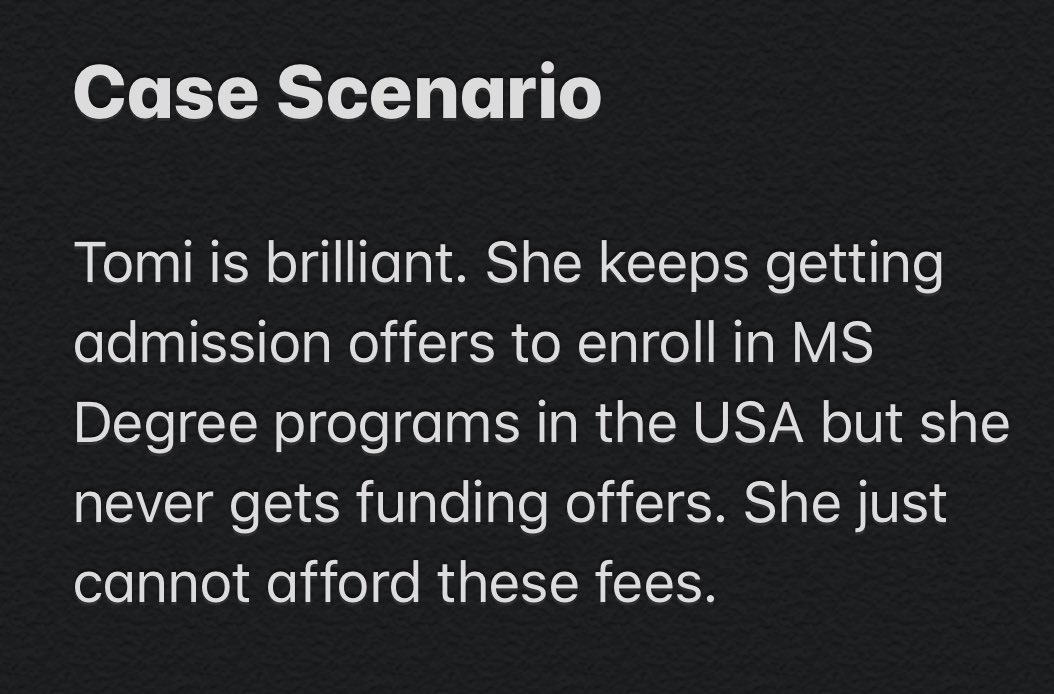Development bank of Nigeria (DBN) loan worth at least ₦10million
The Development Bank of Nigeria (DBN) is a wholesale financial institution. Its primary objective is to improve the availability of funding to micro, small and medium-sized companies (MSMEs). Credit is provided through financial intermediaries that are eligible, i.e. Participants' Financial Institutions (PFIs). Development Bank of Nigeria loans are great for businesses, looking for long-term funding.
The DBN was created by The Federal Government of Nigeria (FGN) in collaboration with its global development partners, which include the African Development Bank (AfDB) as well as it is the European Investment Bank (EIB) as well as the French Agency for Development (AFD) and The KfW Development Bank and the World Bank (WB).
By providing credit through credit, the DBN strives to ease businesses' financial challenges across Nigeria. Alongside giving credit as well, the DBN also offers partial credit guarantees to qualified financial intermediaries (PFIs). By doing this, the DBN has pushed them to take on greater risk in lending.
Through the addition of capital in the form of additional capital, the DBN has helped in reducing interest rates as well as increasing loan tenors, which allows businesses to invest in major improvements, buy new equipment, and purchase equipment and other supplies.
It is a part of the Development Bank of Nigeria and exists alongside other development finance institutions (DFIs), including the Bank of Industry (BOI) and the Bank of Agriculture (BOA). It also has a close relationship in conjunction with the Central Bank of Nigeria (CBN).
Types of services, funding, and types of loans that are available through the Development Bank of Nigeria
Part and wholesale credit risk-free guarantees
The Development Bank of Nigeria provides risk-sharing and wholesale credit facilities to PFIs to lend onward to companies. These PFIs comprise microfinance banks, commercial banks as well as current development finance organizations as well as leasing businesses.
Read also : Federal Government loan for businesses.
The DBN doesn't directly lend to companies. Instead, DBN gives money to PFIs, which are required to extend credit to businesses on behalf of the DBN. Credit is generally provided through a secured or unsecured term loan. Working capital financing is also available.
The Development Bank of Nigeria, loan repayment terms are flexible. Tenors for loans can be extended to 10 years, and a moratorium that is up to 18 months is possible. All interest rates are affordable.
The DBN gives credit that can be used to assist local entrepreneurs and empower entrepreneurs. In turn, it hopes to have an impact on the Nigerian economy by diversifying the economy and job creation and wealth creation as well as economic expansion.
The Development Bank of Nigeria does not solely focus on one specific area in the country's economy. The DBN gives loans to companies that are in any sector of the economy, which include manufacturing, resource extraction and services. This signifies that DBN products are available to virtually any business within Nigeria.
Capacity building -the capacity building program of the DBN Entrepreneurship Training Program
The Development Bank of Nigeria runs an education program aimed at equipping businesses with the knowledge needed to succeed. The program teaches MSMEs how to write business plans, fundamental bookkeeping and business management, in addition to other aspects. By taking part in these courses, the DBN hopes to help businesses be more creditworthy.
Read also : CBN loan worth up to ₦2billion Naira.
Eligible for the Development Bank of Nigeria loan
Any company that is involved in the production of enterprise can be qualified for loans from the Development Bank of Nigeria.
The DBN does not provide funding to individuals, so should you not be registered, your business is required to be registered through the Corporate Affairs Commission (CAC).
Additionally, you must be a member of one of these financial institutions, i.e. PFIs. This means that you'll have to open an account with a bank at one of the institutions listed below:
Commercial banks
- Access Bank Plc
- Ecobank Nigeria Bank Plc
- FCMB Ltd
- Fidelity Bank Plc
- First Bank Nig Ltd
- GTBank
- Stanbic IBTC Bank Plc
- Sterling Bank Plc
- Union Bank of Nig Plc
- Wema Bank Plc
Microfinance institutions
- AB Microfinance Bank Nigeria Ltd
- Accion Microfinance Bank Limited
- Addosser Microfinance Bank
- Baobab Microfinance Bank
- Bosak Microfinance Bank
- Davodani Microfinance Bank
- HASAL Microfinance Bank
- Infinity Microfinance Bank Ltd
- La Fayette Microfinance Bank Limited
- LAPO Microfinance Bank Ltd
- Mainstreet Microfinance Bank Ltd
- The NPF Microfinance Bank plc
- Parallex Microfinance Bank
- Seedvest Microfinance Bank
- Trust Microfinance Bank
The new PFIs may be included in the lists. Therefore, if your bank isn't included on the list above, you might be able to contact them by phone to find out. Alternatively, you could apply for and open an account for your business through any of the financial institutions.
How do I make an application for a Development Bank of Nigeria loan?
In order to apply for a DBN credit, one has to visit one of the banks (banks) that are listed above. After that, you are required to declare your intention to apply for the DBN loan.
Read also : Bank of Agriculture (BOA) Loan worth at least ₦5million.
The bank will examine your business in general and the need for the loan. If its assessment is positive, then the bank will make an application to the DBN to fund the loan.
DBN DBN will conduct an internal review prior to accepting the loan. After approval, the credit will be transferred to the bank, which will then transfer the loan to you.
If you are trying to get a DBN loan, the conditions will vary based on the bank and the nature of the company (limited firm or business) and the amount of loan required.
But, some essential documents are often required, such as a declaration of the reason for the loan and a business plan financial statements and proof of collateral provided (if there's any).
A list of the things you might need is:
Read also : Bank of Industry (BOI) loan.
- Application form completed
- Company profile
- Business plan
- Budget for cash flow
- Statements from banks (12 months)
- Audited financial statements
- Certificate of Incorporation
- A valid means of identification (driving license or passport, voter's card, etc.)
- Address proof
- Information on collateral that is offered
Most frequently inquired about questions (FAQs)
Can I get a loan direct from the Development Bank of Nigeria?
It's not true, and the DBN does not lend directly to companies. In the end, loan funds are distributed by Participating Financial Institutions (PFIs). These PFIs are charged with evaluating your creditworthiness, as well as overseeing loans that are approved.
How long do I have to repay for a Development Bank of Nigeria loan?
Based on the character of your company and the purpose of the loan, the loan terms could be as long as 10 years. A time-bound moratorium of up to 18 months (where the repayments aren't made) is also available.
What is the interest rate that the Development Bank of Nigeria charges?
DBN loans are offered with variable interest rates. The interest rates are based on the loan's tenor and are based on the current market rates.
How is this Development Bank of Nigeria loan differ from other loans for business?
DBN loans are designed for small and medium-sized companies (SMEs). This means that SMEs can access greater credit. Furthermore, it is the case that the DBN can provide loans for the long term, while other commercial loans tend to be short-term.
What is the maximum amount I can take out through the Development Bank of Nigeria?
Micro-sized businesses that are owned by individuals can get up to 10 million Nigerians, and those who fall in the small category could get approximately 150 million Nigerians. For companies of medium size, money up to the value in the range of 600 million Naira could be available.
Read also : Nigerian Export-Import Bank (NEXIM) loan worth at least ₦10million.
Is The Development Bank of Nigeria require collateral?
Since the DBN loans through intermediary banks, they will be subject to their particular rules in terms of collateral. But, in general, collateral is mandatory. The most common collateral types are:
- Obligations of The Federal Government of Nigeria (FGN Bonds, FGN Eurobonds, FGN Treasury Bills, etc.)
- Obligations of state governments and institutions from the Federal Government of Nigeria
- Other non-government debt instruments
- Physical properties, e.g. real estate
- Third-party Guarantors (or collateral)






